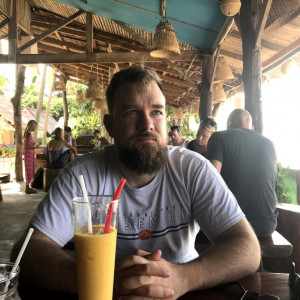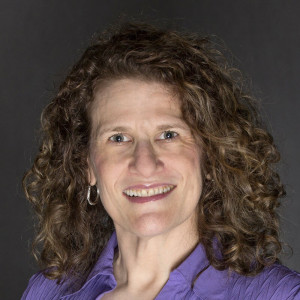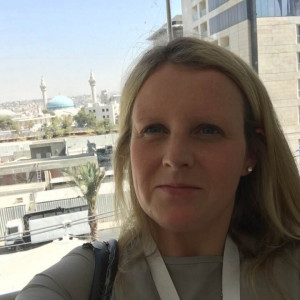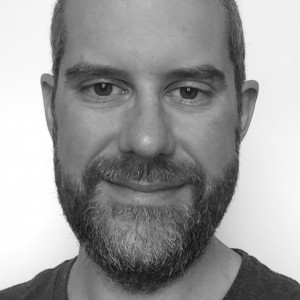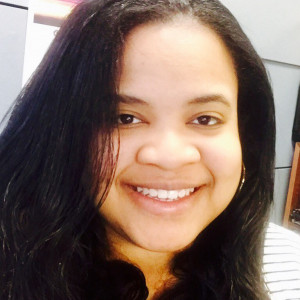What's your typical work routine?
Interview with Artur, an engineer who found purpose as an Intrapreneur
I try to start my day with one of the following:
- Running
- Tony Robbins priming
- Wim Hoff breathing exercises and a cold shower
Then, I try to journal. The purpose is to dump any lingering thoughts on paper, so they are not cluttering my mind anymore.
Persistent or frustrating thoughts have a way of coming back and something as easy as writing it down purges them from consciousness.
I fail to do this more often than not though. So, I manage to write everything down every 3rd or 4th day.
The ideal next thing is to jump straight into the hardest thing to do on my list. I am most productive in the mornings, but with the European Union and United States time difference, there is always something that happened during the night that needs a reaction.
The hardest part is judging what is hard or more important. Sometimes it is an intricate implementation detail, but with each year I am discovering that dealing with people is more important, effective and difficult. Though, separating signal from the noise is tougher in communication than in code.
I would love to reserve the "unfocused" tasks for the post-lunch energy slump, but it is hard to judge and quickly recognize what these tasks are.
When I am home, communication happens in the late afternoon or evening. I am about six timezones ahead of my coworkers, so they tend to come online later in my day.
Some of the days I can follow the above schedule. In others— life intervenes. My grandpa is getting older and needs our care, we recently ran a full-on apartment renovation, and we are currently in the process of organizing a wedding. So, we have a lot of "life" thrown at us (I'm sure having kids feels this way, and I am not looking forward to that particular aspect).
When I have errands to run, I sacrifice my beautiful morning routine to get stuff done. This happens so often that I count this as a typical thing. I jump out of my bed, scramble like crazy to deal with whatever I have to and dive straight to work whenever I can.
If you have to deal with your family, you will not be able to do the morning thing every day. Start once a week and experiment with different approaches to determine what works for YOU. I found that meditation is not for me, but spending time outside helps me a lot.
Artur realized entrepreneurship wasn't for him—see how he carves out his creativity and purpose as a remote Intrapreneur at Automattic.
Read full interview from Interview with Artur, an engineer who found purpose as an Intrapreneur.
Interview with Meryl, a digital marketer and master of home office organization
Start my day with a cup of Joe and the newspaper. Yes, the printed edition of the local newspaper. Then, I head to Orangetheory for my 7 am workout and a little socializing.
Bursting with energy and feeling great knowing I got my exercise done for the day, I go home and get right to work. (After a shower, of course.)
The first things I do are the hardest tasks and those with the earliest deadlines. I'll take a mid-day break to walk Melody and Carrie, the furry company mascots. I save the less challenging tasks for the afternoon.
Meryl K. Evans is skilled at creating a home office that leads to remote work flexibility. See her advice for creating a successful workspace, and hear about her journey into freelancing.
Read full interview from Interview with Meryl, a digital marketer and master of home office organization.
Interview with Nathan and Connor, owners of Freeeup
We are both early risers. We like to get up early, get on the same page with our teams, clear our emails and Skype, address any major issues, get planned for the day, then launch into meetings, phone calls, interviews, and projects.
The crazy thing is that we both live on opposite sides of the country in different time zones. I’m in Denver, Colorado. Nate is in Orlando, Florida.
Our days are different in that Nate takes most of the company’s podcast interviews, client calls, sales calls, etc. while I am more focused on behind-the-scenes marketing, content, advertising, and recruitment.
Thinking of creating your own remote startup? See how Nathan and Connor built a successful and effective remote team from scratch.
Read full interview from Interview with Nathan and Connor, owners of Freeeup.
Interview with Ben, a web developer who freelances from home
The last few months, I've been working hard at keeping to a more early wake up time. During the winter, I was rolling out of bed 10 minutes before work, grabbing something to eat, and settling in.
These days, I usually get up about an hour and half before work, sometimes the gym, most times not (I'm trying I swear). I'll grab a bite, then sort of dig through emails before I even really start work (it's sort of a warm up time to me actually being functionally working).
Depending on the week, I do code reviews, which might start as soon as the clock officially rolls over to 8AM where they are (I'm in the AST timezone, they're in CST).
Other than that, it's the usual messages from different members of their staff with questions and bugs and requests for queries, in between working on whatever my current contract task is. I usually pull about 3 -4 hours of work in the "morning", somewhere between a half hour and hour and a half for lunch, then another 3-4 hours (most times I stop working around the same time their offices start shutting down, because the people I might need answers from leave).
I generally match their 8-5, and on American holidays I get less work done, either because I'm feeling less motivated, or because I need someone to answer a question. I don't usually take time off for Canadian holidays, because time off is money not made.
I've never been much for vacations, so I don't really block more than a day off here and there (except for maybe a 3-5 day stretch somewhere in the middle of summer, and of course Christmas and New Years).
Learn the tips and tricks Ben uses to stay productive while working remotely on a hybrid team
Read full interview from Interview with Ben, a web developer who freelances from home.
Interview with Maggie, a senior product manager at HubSpot
In the morning, I put the head down and focus on getting my work tasks done, check Slacks, follow up on emails. The afternoon is usually wrapped up with Zoom meetings, where I talk to my colleagues in Boston. After the kids go to bed, I usually follow up on Slack chats with my team.
Remote work allows Maggie to live in a small town and excel in her career. Hear about how she stays professionally connected, and her essential career advice for remote workers.
Read full interview from Interview with Maggie, a senior product manager at HubSpot.
Interview with Harry, an IT Architect who works from home
My wife and I have 3 school aged kids, so my routine mainly revolves around their schedules of going to and from school (although it's a bit more relaxed now for the summer).
Typically I'm up at 5:30 to make coffee for my wife and wake everyone else up. After making breakfast, we'll drop the kids off at school and start my day around 7:30. I'll work until noon, then after eating lunch try and sneak in a 30 minute bicycle ride. I'm back to work afterwards until it's time to start making dinner around 5:00, which my wife and I will alternate throughout the week. After doing the dishes and getting the kids to bed I'll spend a few more hours finishing up my day, typically until around 9:00.
My weekends follow the same general time schedule. Saturday I try and reserve for getting things done around the house. I'll use a few hours on Sunday to catch up on anything I may be behind on, or get a jump start on my new week.
Harry has worked remotely for almost 10 years as a senior mobile, web and desktop developer—learn how he balances work with family.
Read full interview from Interview with Harry, an IT Architect who works from home.
Interview with Patryk, a Front-end Developer & UI Designer
I usually get up in the morning and head off to a coworking space near my apartment, where I can fully focus on delivering great code.
If it's windy, I set up a temporary office in a cafeteria on the beach. From there, I can go kitesurfing when I need a break.
Our team at PRNCPL is distributed across USA and Europe, so sometimes I need to be online in the afternoon to discuss back-end or design, or to have a status call.
There are also days when I'm running errands in the morning and catch up with work in the evening, but I prefer to push code during the day.
Patryk has learned that there is no reason to wait for the flow - once you start working, it will happen naturally.
Read full interview from Interview with Patryk, a Front-end Developer & UI Designer.
Interview with Chanell, a freelance writer and social media manager
Having a daily routine has helped me to stay grounded in this career change.
I decided to go remote last fall when I saw that I needed a better plan to accomplish real work-life balance. I was doing full-time communications work at a brick and mortar office, and I had been doing some freelance writing work on the side.
Once I transitioned from working in an office to working at home, there were still some things about my work in the office that I wanted to take with me. I decided to keep the same work hours as I had before. I typically begin working at 8:30 am and continue until I finish completing my projects for the day. Unless I received a late project, I usually end the day at 5:00 pm (including all business communication).
To start the day, I take my dog for a one-mile walk. This helps me to relax, and get my rhythm for the day. While I grab breakfast, I usually sit down and look at the schedule for the day. I create my plan for the week on Sundays and add in any new additions throughout the days.
I always start with the longest and most involved project first —since I have the most energy in the morning and early afternoon— and then tackle shorter projects throughout the rest of the day. Once I begin working for the day, I always try to step away at least every hour to walk around and rest my brain. I never realized how much brainpower it takes to sit down really and write, even if you have an outline set and ready to go. Therefore, it is crucial for me to step away and allow my head to rest to gather my thoughts.
I stop for lunch around 1:00pm, and also try to take a short power nap to regain some energy to finish the day. At the end of the workday, I always double-check my schedule for the next day to be sure I have included all that needs to be done (there is always something new to add).
I will check all platforms (Upwork, email, and Trello) one last time for any late day assignments, or confirm deadlines for the next two days. I then end the day with another mile walk with my dog to transition into a time of rest for the evening.
Chanell is a freelance writer working from Atlanta that writes about business management tips and video game entertainment threads.
Read full interview from Interview with Chanell, a freelance writer and social media manager.
Interview with Cameron, a designer who works remotely at a WordPress agency
I start my workday at 9:00 AM and sometimes attend a pre-work call with some colleagues where we discuss the topic of Growth both in our personal lives as well as professional.
My actual to-do list for any given day is pretty dynamic; one day I may be heads-down in Sketch designing website components for projects or interviewing clients and the next day partnering with our Sales and Marketing teams to create graphics or marketing initiatives for our company. I also help fill-in as a Frontend Engineer on projects as needed.
All of this helps keep things fresh for me and prevents me from getting burned out filling like I'm stuck in a single routine.
Learn how Cameron started full-time remote work after trying freelancing and starting a digital agency.
Read full interview from Interview with Cameron, a designer who works remotely at a WordPress agency.
Interview with Jenna, a freelance writer who works remotely to help manage her health
One of the biggest reasons I chose to work freelance is because of my health.
I have fibromyalgia, so I need to sleep a lot to minimize flare-ups, which really reduces my effective working hours. I also am quite mentally “foggy” and not at my best for the first few hours of my day. Some days I can’t get as much done as I would like. I’ve always pushed myself too hard and ignored warning signs until my body essentially shut down and forced me to stop working (I ended up on a leave of absence in 2016).
This all means I’ve been learning the importance of listening to my body and allowing my schedule/routines to be flexible and based around how I’m feeling. It’s a delicate balance because in order to get anything done I can’t rely much on motivation (I also have ADHD and depression) and need to push myself at least a little bit to do things when I don’t feel up to it. But as I mentioned, I have a history of pushing myself way too hard and suffering the consequences afterwards.
With all that said, my typical work day starts at some point in the afternoon after I’ve had a few hours to fully wake up. I usually start off by going over my schedule for the week and any approaching deadlines. I try to schedule as much as I can ahead of time so that I’m never doing anything at the last minute.
Even though I work well under pressure, I never know when I’ll have a flare-up or migraine which renders me totally unable to do anything, let alone write coherently. I also like to look for new clients in the early part of my work day, since it doesn’t require much thinking.
Sometimes I write my burn drafts earlier in the day if I’m not struggling to find words, but for the most part I leave the actual writing for the later hours. Any time I try writing too soon, I end up making stupid mistakes, or it takes me forever to write anything because the “fogginess” affects my vocabulary and creativity. I’ve always been a night owl and am the most creative and productive at night so that’s when I like to write.
Jenna started working remotely after realizing her office job was causing health problems—now she works as a freelance writer and writes about self-improvement
Read full interview from Interview with Jenna, a freelance writer who works remotely to help manage her health.
